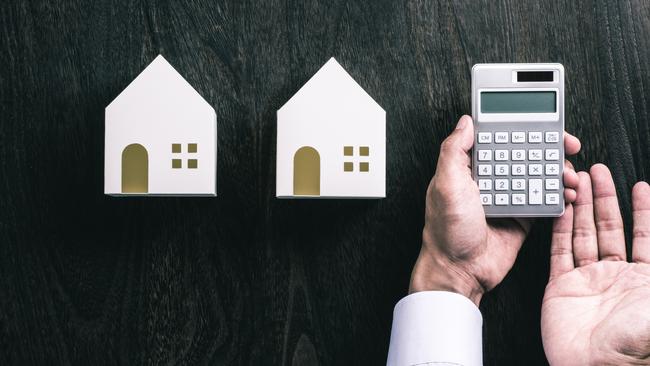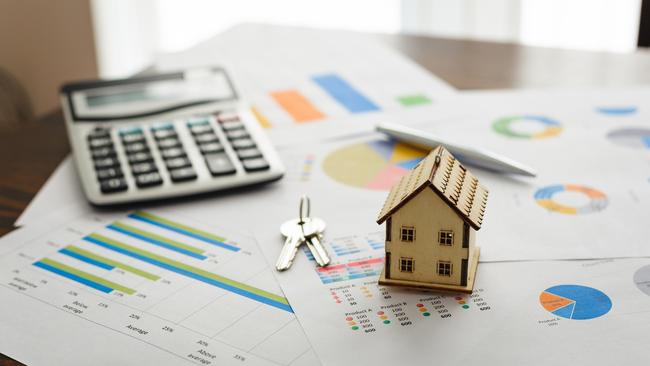Real Estate Australia: Property guru John McGrath’s top buying and selling tips for 2023
Property guru John McGrath shares his insights into the ‘nuances’ and ‘efficiencies’ of the uncertain and rapidly shifting real estate market.

Property
Don't miss out on the headlines from Property. Followed categories will be added to My News.
When making property moves there are some things you must get right.
From due diligence to finding the right professionals to help you, some of the most basic parts of a real estate transaction are the most important – and ones people often get wrong.
We asked some of the nation’s top property minds to go back to basics.
RELATED: School zones: what you need to know before you buy
Australian property in 2023: Experts reveal what will help and hurt the market this year
Home buying guide: how to future proof your next property against energy bill rises
HOME PRICING
Real estate guru and McGrath Real Estate chief executive John McGrath said homes were usually priced based on what similar properties sold recently had made.
“But even that won’t be definitive,” Mr McGrath said.
“Every home has nuances. Location, aspect, condition. These things may look the same if you squint, but the market may pay 10 per cent more for a north aspect over a southern aspect.”
Another factor for home pricing is timing, and while he said a valuation was often fairly close after even a few months, the market was “very efficient”, meaning the top offer could be one of the earlier ones.

“The best price you obtain within the first few weeks of launching the home is also most always the best price (overall), assuming you’ve had at least 20 qualified buyers through the home,” Mr McGrath said.
But in the end, it is the buyers who decide what a home is worth.
Property Home Base boss and flat-fee buyer’s agent Julie De Bondt-Barker said they needed to remember comparable sales were not only what the agent suggested.
Ms De Bondt-Barker advised comparing land size, the number of bedrooms, bathrooms and living areas, as well as orientation, nearby amenities and even traffic volumes.

DUE DILIGENCE
As a buyer or seller, research takes time. Getting it right requires several weeks of inspecting a variety of homes in your desired area.
According to Ms De Bondt-Barker, buyers should also learn which agents sell homes for close to the price guide, and which do not.
She suggested jotting down what you like, do not like and even a score out of 10 to help you better recall a property later on.
For sellers, Mr McGrath said the key due diligence was around the agent and noted the right one could add up to 10 per cent to the sale price.

He recommended investigating their track record, as well as speaking to friends and neighbours who have used the agent to get a sense of what worked for them and what did not.
Beyond this, your “gut” feeling about the agent, and their plan to sell your home, were also important.
“The two things I strongly recommend you don’t choose an agent on, are their fee and their valuation,” Mr McGrath said.
“If the best agent is 1 per cent more expensive than the second-best, then they’re a great investment. And beware the agents who try to woo you with an inflated valuation as it almost always leads to tears.”
And, once selected, he said it made sense to listen to your agent’s advice.
INSPECTING THE RIGHT WAY
Open homes are a core feature of the Australian property market, but they are also a game of cat and mouse between buyers and sellers.
Mr McGrath said they provided an efficient way to connect vendors with potential purchasers – and to bring their emotions into play. This means times should be set to show the home in its best light.
“The emotional appeal of a home that is beautifully presented can add materially to your sale price,” he said.
While bringing in a stylist and even gardeners could cost up to $10,000, Mr McGrath said that investment frequently led to an even bigger bonus to the sale price.

For buyers, Ms De Bondt-Barker noted the goal of an inspection was to see through any emotional pulls and to assess the home against your actual needs. That means bringing in your own professional help.
“You always get a contract reviewed by either a conveyancer or a solicitor,” Ms De Bondt-Barker said. “And always get a building inspection.”
In addition to this, she suggested confirming rules in your state or territory on buying subject to a building inspection. In Victoria, only a building practitioner’s report will enable you to renege on a contract. A report by a building inspector, who you would engage to review a home before you make an offer, might not get you out of the purchase.
KNOW THE METHOD
Mr McGrath said for most quality homes, the “tension created by a successful auction invariably delivers a premium result”. “Also, “unique homes that may prove impossible to estimate their value benefit from using the auction process to help establish where the strongest buyer interest may be”, he said.
But for some sellers, especially those in areas where auctions are not common, a private sale will be best.
For buyers, the sales methods both come with their own rules and Ms De Bondt-Barker advised being across the specifics for your state.

In Victoria, a home bought three business days before or after an auction is sold unconditionally. In NSW buyers must register to bid at auction, while in Queensland homes going to auction cannot have a price guide. More detail can be sought on each state’s consumer affairs website.
A home bought via private treaty has a three-day cooling off period in which a buyer can walk away in Victoria. In NSW they have five business days, but in Western Australia sales are final.
In addition to knowing the rules, she noted it was important for those without a chequing account to ensure they raised their electronic transfer cap, and to notify the sales agent before making an offer if this might not cover the full deposit.
BUYER BASICS
• Do not trust comparable sales from agents, make your own list of similar properties
• Due diligence takes several weeks and significant numbers of home inspections
• Take notes about homes so you can quickly recall pros and cons
• Track how often agents are selling in or near their quoted range, and above it
• Research sales methods and the rules that apply in your state
• Know what your transfer limit is before signing a contract that requires a deposit

SELLER BASICS
• Valuations are a good guide, but listen to market feedback
• Check agents’ track record, feedback from past clients and their plan for selling your home before hiring one
• Do not assess prospective agents purely on their fees, or what they value your home at
• Open homes should be used to show your home to best effect
• Styling advice might cost, but could boost your sale price
• Be honest when assessing the quality of your home, and listen to your agent’s advice around auction or private treaty
Sign up to the Herald Sun Weekly Real Estate Update. Click here to get the latest Victorian property market news delivered direct to your inbox.
MORE: Home builder cuts price of new builds by $50k as caution grows
Jamie Durie buys Paul Bangay’s Stonefields, plans to turn it into luxury retreat
Wealthy Grollo family buy Mt Hotham Airport, announce big plans




